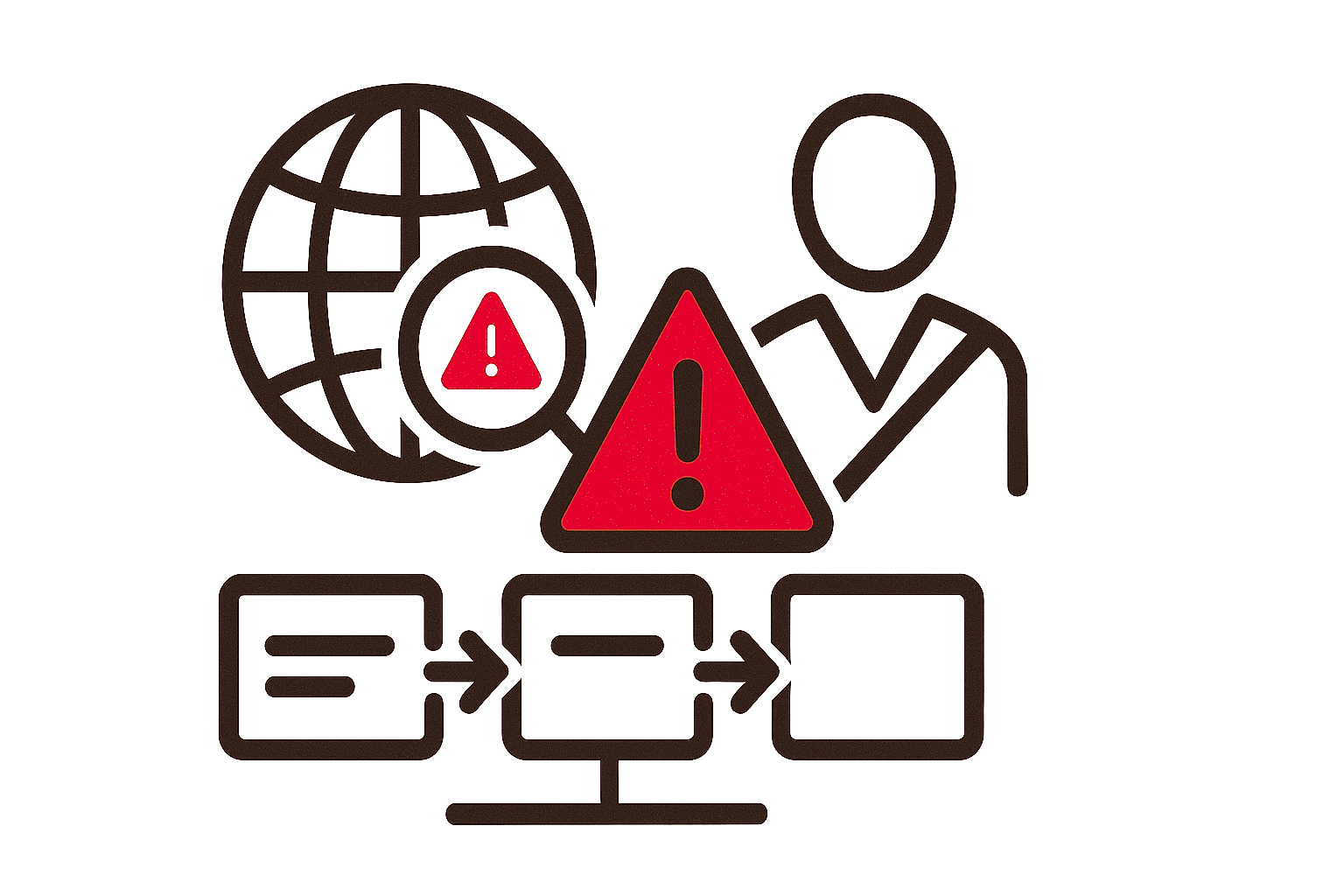
Sankční seznamy
Prověřujeme české i zahraniční firmy a fyzické osoby z celého světa
OVLÁDÁNÍ
Z RUSKA
Veřejné peníze nesmějí téct k ruským vlastníkům nehledě na sankční seznamy.
DATA NA
JEDNOM MÍSTĚ
Denně aktualizované seznamy ČR, EU, USA a 20 dalších.
VLASTNICKÉ
STRUKTURY
Sankční seznamy nestačí. Prověřujeme i statutáry a vlastníky.
HLÍDAČ
BUĎTE V OBRAZE
Pamatujeme si koho jste prověřili, upozorníme vás pokud se objeví na sankčním seznamu
Na jednom místě
Datlab Sankce prověřují právnické i fyzické osoby proti sankčním seznamům ČR, EU, USA a 20 dalším. U právnických osob je 99 % rizik způsobeno osobami v majetkové struktuře, prověřujeme proto automaticky včetně vlastnických struktur. Změny a nově vzniklá rizika automaticky hlídáme, každého obchodního partnera tak stačí prověřit pouze jednou.
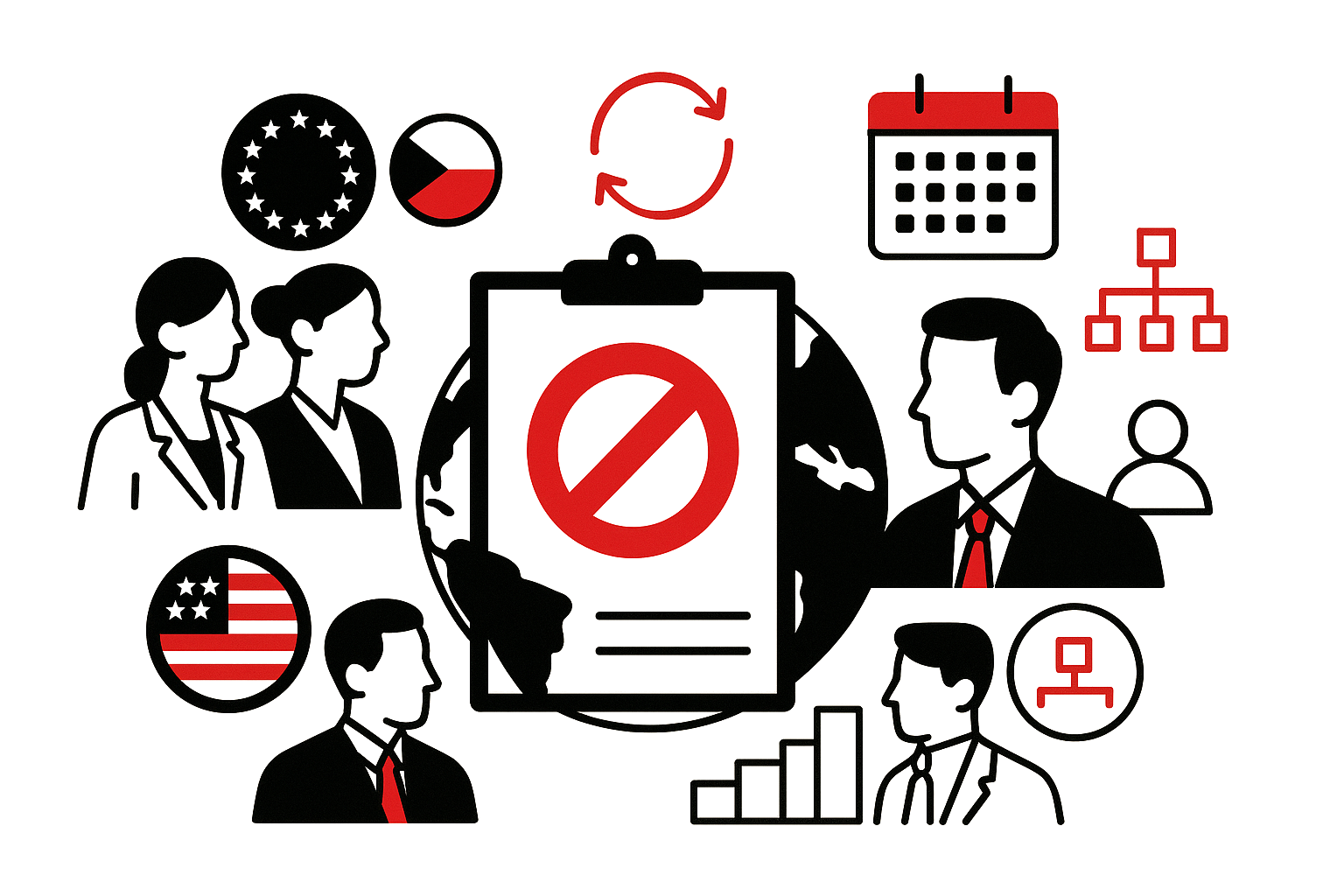
Sankční seznamy EU, ČR, USA a 20 dalších
Globální vlastnické struktury
Přímí i koneční vlastníci
Různé přepisy azbuky a varianty jmen
Automatické Hlídání změn
API a integrace do SAP, CRM a dalších systémů
Dávkové prověření
Sankcionované adresy
Neomezený počet uživatelských účtů
PDF certifikát po každém prověření
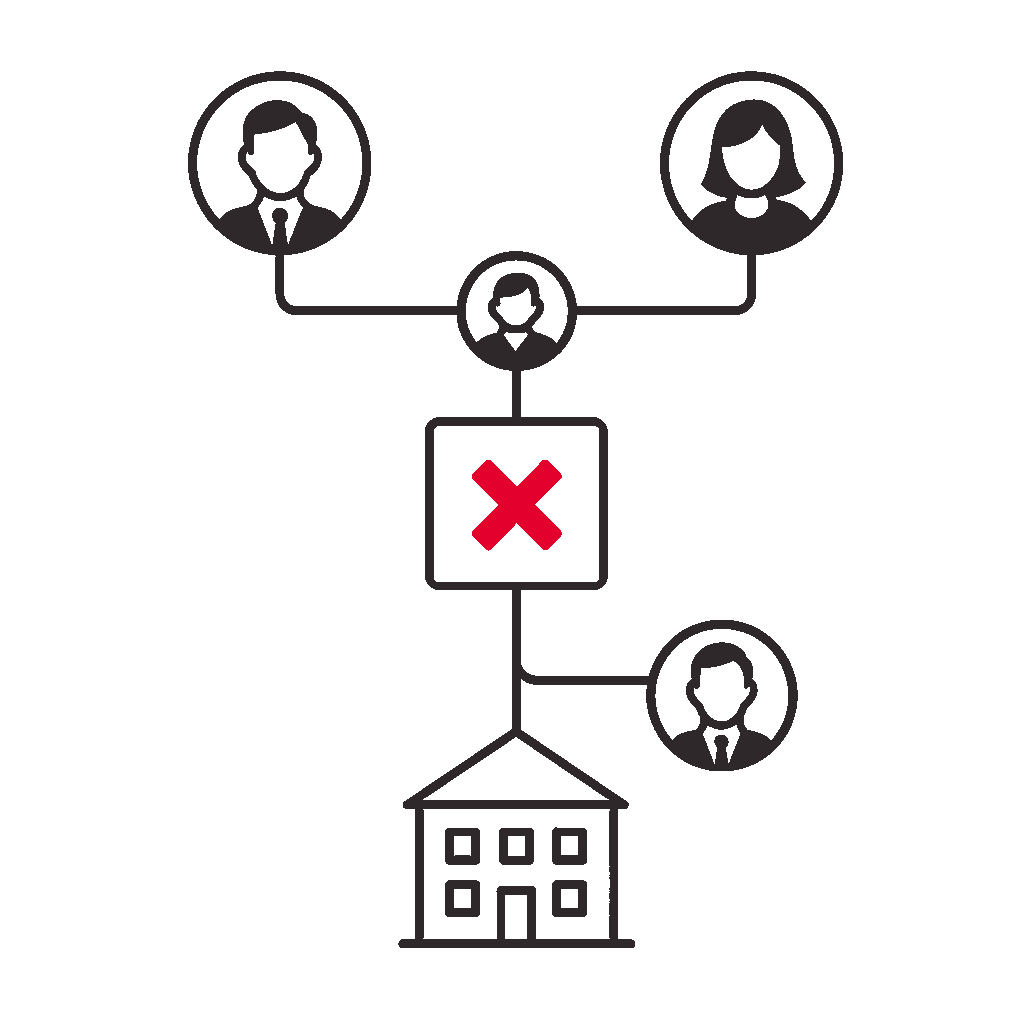
Vlastnické struktury
Při prověřování sankčních seznamů je nezbytné zaměřit se nejen na samotné firmy, ale i na jejich manažery, přímé i nepřímé vlastníky. Požadavek vyplývá ze sankčního nařízení EU a je podrobněji vysvětlen v FAQ Evropské komise a FAÚ. Naše vlastní zjištění potvrzují, že u firem v EU je 99 % rizik spojeno právě s osobami v jejich majetkové struktuře — nikoliv s tím, že by na sankčním seznamu figurovala firma samotná.
V praxi tedy při prověření firmy ABC ověříme nejen to, zda firma není na nějakém sankčním seznamu, ale zkontrolujeme i její statutáry, přímé a koncové vlastníky. Níže je ukázka prověření německé společnosti, jejíž mateřská firma sídlí v Rusku. Ani jedna z těchto společností není uvedena na žádném sankčním seznamu. Ruská mateřská společnost je však vlastněna firmou, která figuruje na ukrajinském sankčním seznamu, a tu dále vlastní fyzické osoby uvedené na sankčním seznamu USA. Datlab Sankce proto u německé společnosti hlásí významné riziko, a to díky přístupu k datům z německých a ruských rejstříků, který takovéto vazby umožňují odhalit.
Ovládání z Ruska
Specifické postavení mají zadavatelé a dodavatelé nadlimitních veřejných zakázek a příjemci dotací EU, pro které platí výrazně přísnější regulace - konkrétně články 5k a 5l nařízení 833/2014. Nesmějí poskytovat platby jakýmkoliv osobám ovládaným z Ruska či Rusy, resp. Osobám ovládaným Ruskou federací. Proto Datlab Sankce indikují jako riziko právě i případy tohoto ovládání, včetně vymezení pro koho je riziko právně relevantní. Pro ostatní uživatele se jedná o nezávaznou indikaci.
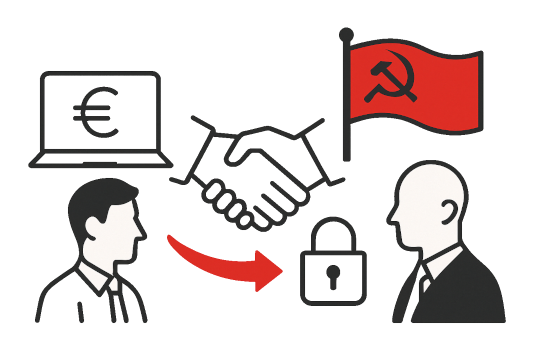
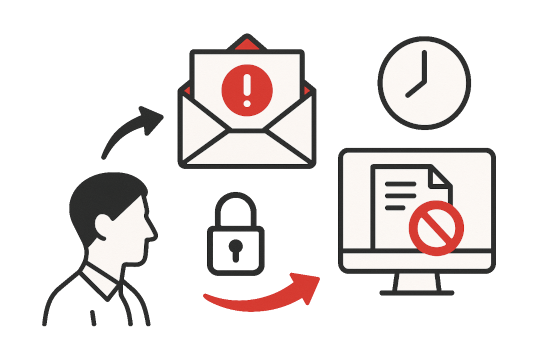
Hlídač změn
Sankční seznamy i majetkové struktury se neustále vyvíjejí. Legislativa přitom omezuje obchod se sankcionovanými subjekty (a jejich firmami) s ohledem na aktuální stav. Pokud tedy uzavřete v roce 2024 smlouvu s firmou ABC, jejíž majitel se v roce 2025 ocitne na sankčním seznamu, firmě je zakázáno platit faktury nehledě na smlouvu. Datlab Sankce umí hlídat změny automaticky - pokud jste tedy ABC loni prověřili, napíšeme vám e-mail, jakmile u ní zjistíme nové riziko.
Sankční seznamy jsou denně aktualizovány. Seznam EU obvykle aktualizujeme dokonce s několika denním předstihem oproti oficiálnímu zdroji (po oznámení sankčního balíčku trvá propis do sanctionsmap.eu řádově 5-15 dnů). U majetkových struktur dochází ke zpoždění vzhledem k různým postupům a lhůtám zápisů do rejstříků (globálně).
Odkud bereme globální data
Díky spolupráci se společnostmi MOODY’S a CRIF, máme přístup k informacím o majetkových strukturách firem z více než 150 zemí včetně Ruska nebo Číny. Informace jsou získávány z oficiálních rejstříků od partnerů z daných zemí, a to včetně rejstříků neveřejných a placených. Díky tomu je možné identifikovat i dlouhé vlastnické řetězce přes 10 a více jurisdikcí - v EU jsou častým mezičlánkem např. společnosti na Kypru.
Ani tak nelze zaručit, že máme informace o všech společnostech světa. Data od poskytovatelů i zdrojových rejstříků někdy mohou být zpožděná za realitou, případně neúplná (obvykle např. v arabských zemích či v Africe). V takových případech Datlab Sankce vystaví report o zjištění s indikací neúplnosti dat - v případě potřeby zesílené kontroly je potřeba požádat tamní partnery o doložení vlastníka. V ostatních případech lze akceptovat zjištění (byť neúplné), přičemž certifikát potvrzuje přiměřenou snahu klienta o prověření obchodního partnera.

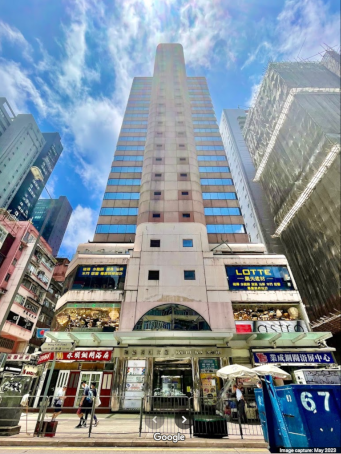
Sankcionované adresy
Specifikem seznamů USA jsou zápisy tzv. sankcionovaných adres, tedy hromadných sídel, na kterých jsou zakládány stovky firem. Datlab Sankce u firem na těchto adresách indikuje riziko - přímo relevantní pro subjekty obchodující s USA, zvýšenou pozornost na riziko obcházení sankcí však doporučujeme i společnostem v EU.
Na fotografii vidíte Unit 04, 7/F Bright Way Tower, Hong Kong. Zde sídlí přes 500 firem, které nejsou přímo zapsány na sankční seznam, přesto se na ně částečně vztahují restrikce v USA.
Varianty jmen, přepisy azbuky
V rejstřících se přepisy ruských jmén do latinky vyskytují v řadě variant - liší se podle národních zvyklostí, poskytnuté dokumentace a dalších okolností. Například jméno Дмитрий se běžně vyskytuje ve variantách Dmitri, Dmitrii, Dmitry, Dmitrij, Dmytro apod. Ještě složitější bývá situace u příjmení, patronymických (“prostředních”) jmen, nebo názvů právnických osob.
Pro každou sankcionovanou osobu proto pracujeme s několika různými variacemi jména, vyhledáváme i nepřesné shody s 1-2 překlepy, s/bez patronymickým jménem apod. Obdobně je to s daty narození - přesné datum narození často není známo, nebo se u jedné osoby může v různých sankčních seznamech objevit více různých dat narození.
Díky vyhledávání nepřesných shod má služba výrazně vyšší pravděpodobnost záchytu, a tedy lepší pokrytí rizika porušení sankcí. Zároveň však roste i riziko tzv. falešné shody, a zatížení klienta hlášeními s nízkou relevancí. Naše algoritmy proto u velmi četných jmen (např. Sergej Popov - obdoba českého Jan Novák) zohledňují riziko falešné shody a jsou striktnější, než je tomu u jmen vzácných.

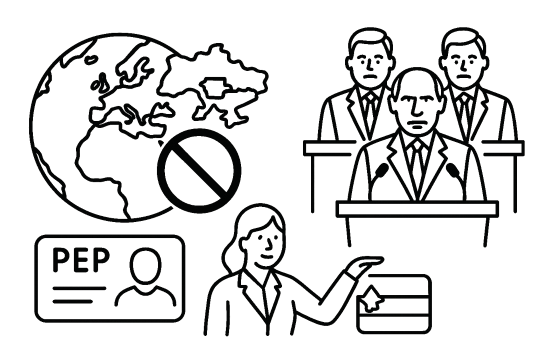
PEP, Rusko a Ukrajina
Datlab Sankce pracuje i se sankčními seznamy Ukrajiny, Navalného seznamy a nejkomplexnější databází ruských politicky exponovaných osob ruPEP.org. Jakkoliv zde nelze očekávat právní závaznost, jedná se o efektivní varování že daná osoba může být výhledově zapsána i na jiný sankční seznam, zároveň jde o informaci podstatnou z hlediska AML. Zejména díky ruPEP máme informace i o rodinných příslušnících a obchodních partnerech sankcionovaných osob, čímž zlepšujeme záchyt nepřímého vztahu se sankcionovanou osobou.
Politicky exponované osoby však Datlab Sankce řeší globálně. Z desítek zdrojů získávají informace o více než 1.000.000 osob od českých po švýcarské či čínské poslance. Jejich záchyt pochopitelně není překážkou pro vystavení “zeleného” certifikátu z pohledu sankcí, doplňkově je v něm však informace o nalezených PEP obsažena.
Dávkové prověřování a API
Potřebujete aby Váš systém řešil sankce automaticky? Máte 1000 IČ k prověření? Máme připraveno několik variant technologického řešení - umíme napojit systémy jako SAP, Helios, JASU a další. Ozvěte se nám a vybereme to pravé.
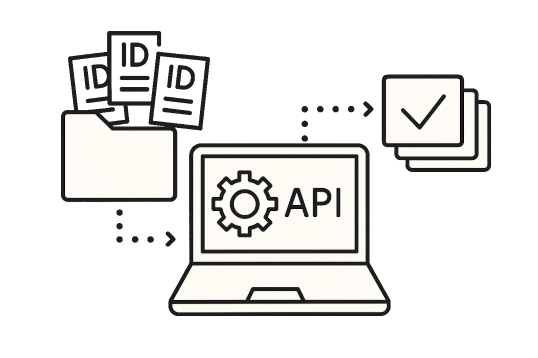
Chci vědět víc
Máte dotaz k prověřování sankcí nebo potřebujete pomoci s používáním služby sankce.datlab.eu? Neváhejte nás kontaktovat prostřednictvím formuláře níže. Rádi vám poradíme s výběrem vhodného předplatného, vysvětlíme výsledky prověření nebo zodpovíme jakékoli další otázky.